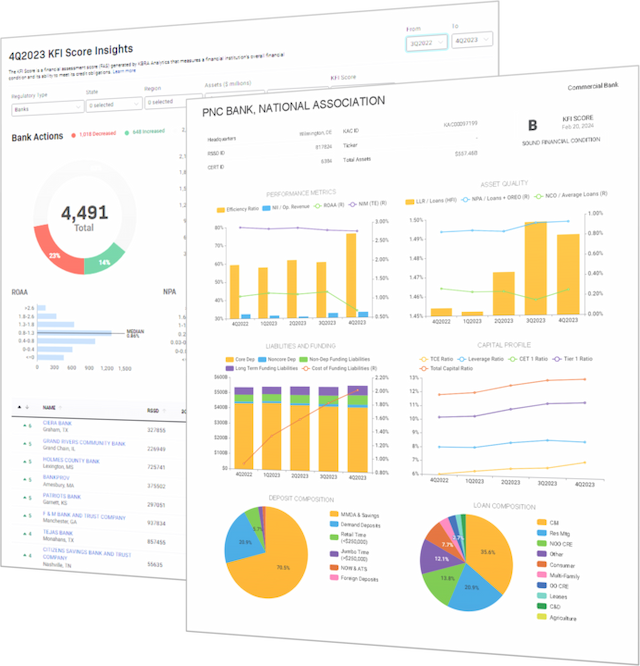KBRA Financial Intelligence
Bank Profitability Could Be Reshaped by Next White House’s Tax Policy Drive
By KFI Staff
For only the second time in U.S. history, a president will serve a second non-consecutive term, as major news sources project that President-elect Donald Trump will enter office with a Republican majority in both the House and Senate. Although some races remain undecided, a Republican-controlled Congress would support the legislative agenda outlined during Trump’s campaign, potentially influencing the U.S. banking sector. Banks have saved hundreds of billions of dollars in income tax payments since the tax cuts of 2017. With further revisions to tax laws expected by the end of 2025, new policies could shape bank profitability and strategic planning in the years ahead.

Shares of publicly traded banks rose following the election results on November 5, indicating that traders may be anticipating favorable legislative developments in the financial sector. Before the election, KFI highlighted how each candidate’s administration could influence new bank capital requirements, as well income from service fees and credit card interest rates. Tax policy, which can significantly impact banking income, is also likely to be a focal point during Trump’s term.
Key provisions of the Tax Cuts and Jobs Act of 2017 (TCJA) are set to expire at the end of 2025, prompting upcoming discussions on potential extensions or revisions. One of the hallmark legislative achievements of Trump’s first term, the TCJA lowered the corporate tax rate from 34% (35% for larger companies) to a flat 21% starting in 2018.
President Biden’s fiscal year 2025 budget proposal had recommended raising the corporate tax rate to 28%, but this was not adopted by Congress. According to the nonprofit Tax Foundation, Biden’s proposed increase would raise the U.S. federal-state combined tax rate to over 32.3%, making it the highest among OECD and G7 countries. A similar proposal could have been pursued in an administration headed by Kamala Harris. By contrast, President-elect Trump has indicated he may seek to extend TCJA provisions and has suggested lowering corporate taxes further. The current 21% corporate rate, a permanent measure under the TCJA, is unaffected by the 2025 expiration. However, Trump has proposed additional tax reductions for certain industries, including a potential 15% corporate tax rate for firms that manufacture goods domestically
The TCJA’s implementation resulted in substantial tax savings for banks, with banks’ effective tax rate averaging 33.1% in the five years before 2017. If that rate had continued, banks would have collectively paid an additional $188 billion in taxes throughout the past six years, or approximately $31.3 billion more per year.

The passage of the TCJA during Trump’s first term was made possible by Republican majorities in both chambers of Congress, with no Democrats or Independents voting in favor. If current projections hold, President-elect Trump will once again work with a Republican-controlled Congress as he begins his second term. However, the substantial U.S. fiscal deficit, which reached $1.8 trillion in fiscal year 2024, may influence forthcoming tax policy discussions. This growing deficit could prompt budget-conscious Republicans to reconsider further tax cuts and possibly support adjustments to corporate taxes, especially if individual tax credits and deductions risk expanding the deficit. In our most recent Insights report, KFI analyzed the impact of the widening deficit on long-term Treasury yields and bank lending.
